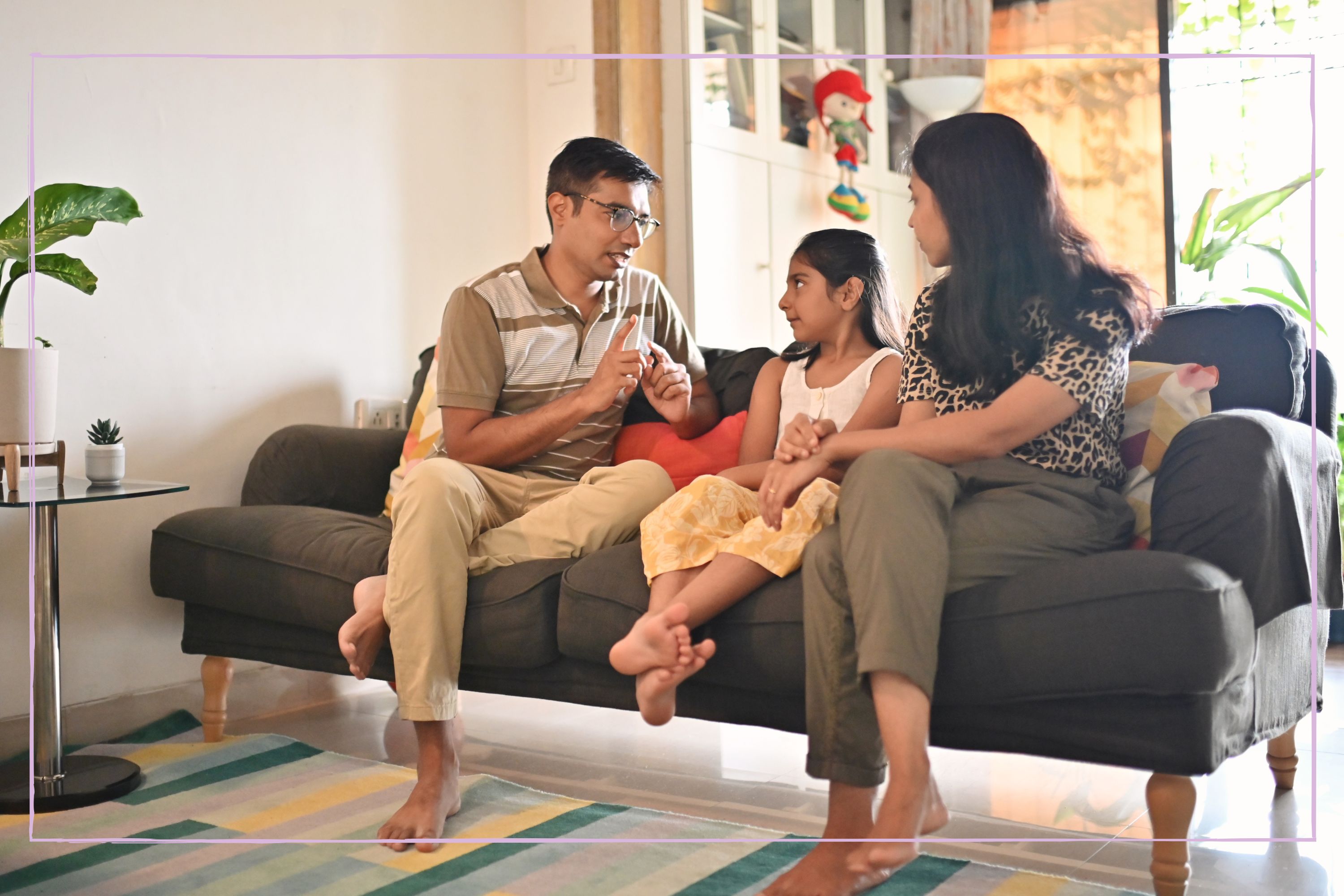Child therapist shares the five conversations to let your kid overhear (#4 could help with behaviour too)
You don't always want your kid listening in on your conversations, but there are times when it can do good

Parenting advice, hot topics, best buys and family finance tips delivered straight to your inbox.
You are now subscribed
Your newsletter sign-up was successful
A child therapist has revealed the five conversations parents should let their kids overhear and while you don't want them eavesdropping all the time, letting them hear certain things can massively help their development.
Helping children to become their own people is one of the most important jobs a parent can do. As parents, not only are we responsible for caring for a child's practical needs, but the help we offer to develop their self-esteem, their emotional regulation, and their confidence is so important to make sure they grow into happy adults who can take on the world no matter what - and even apply for jobs that don't exist yet!
Most of this we do one-on-one with a child, sitting down with them to tackle certain subjects or implementing rules and routines to keep them on the right track. But there is another indirect way to help them grow up knowing how to appreciate themselves, set boundaries, and live a happy, healthy life; eavesdropping.
Yes! Child therapist Jess, known as NurturedFirst on Instagram, has revealed the five conversations you should let your child overhear and it's such a 'simple' way to teach them important life lessons.
1. Let them overhear you standing up for yourself. "I am not able to play until I've had my morning coffee. I'll be able to play in a few minutes once my coffee is done," she uses as an example.
2. Let them overhear you compliment them. "The words we say to our kids when they are little will eventually become how they talk about themselves," she explains. "So, the next time you see your child’s stuffy - say something nice to the stuffy about your child. Watch their eyes light up, and your bond grow as they hear you compliment them."
She uses the example, "Jenny did so well at dance class today! Even when she tripped and fell, she got back up and kept going."
Parenting advice, hot topics, best buys and family finance tips delivered straight to your inbox.
3. Let them overhear you problem solving. Even something as simple as voicing your thoughts while you attempt to locate a lost item can help your kids to learn how to handle problems. Using an example, the expert explains, "I couldn't find my purse anywhere! I was so worried....So I kept looking, calling around, and I realised I forgot it at grandma's house." Just that simple sentence has given your kids an idea of what to do when they can't find something - it can be that simple!
4. Let them overhear you coping with emotions. We all know how difficult it can be to learn how to calm down quickly, so imagine what it's like for children who haven't yet developed the understanding of how to cope with big emotions. Leading by example, you can easily show your children how you cope, voicing your process as you go through it for them to hear. "I was mad today, I wanted to yell at a driver who cut me off. I said out loud, 'That was so frustrating!!!' then I took a breath," the expert explains.
5. Let them overhear you apologise. "Jack, I'm so sorry, I know I was really short and grumpy with you this morning. That wasn't fair. I love you." You're giving them a framework to learn and, over time, implement when they too need to say sorry.
A post shared by Jess | Nurtured First Parenting (@nurturedfirst)
A photo posted by on
So why is eavesdropping the best way for kids to take in these conversations? Surely it would be easier to talk the kids through these things face-to-face? Well, according to the expert, "We believe things we overhear easier than we believe things we are told!
"This is called 'the gossip rule'," she adds. "When we allow our kids to overhear us positively solve problems, talk about others, and cope with our emotions, we teach them to do the same."
Charlie Elizabeth Culverhouse is a news writer for Goodtoknow, specialising in family content. She began her freelance journalism career after graduating from Nottingham Trent University with an MA in Magazine Journalism, receiving an NCTJ diploma, and earning a First Class BA (Hons) in Journalism at the British and Irish Modern Music Institute. She has also worked with BBC Good Food and The Independent.